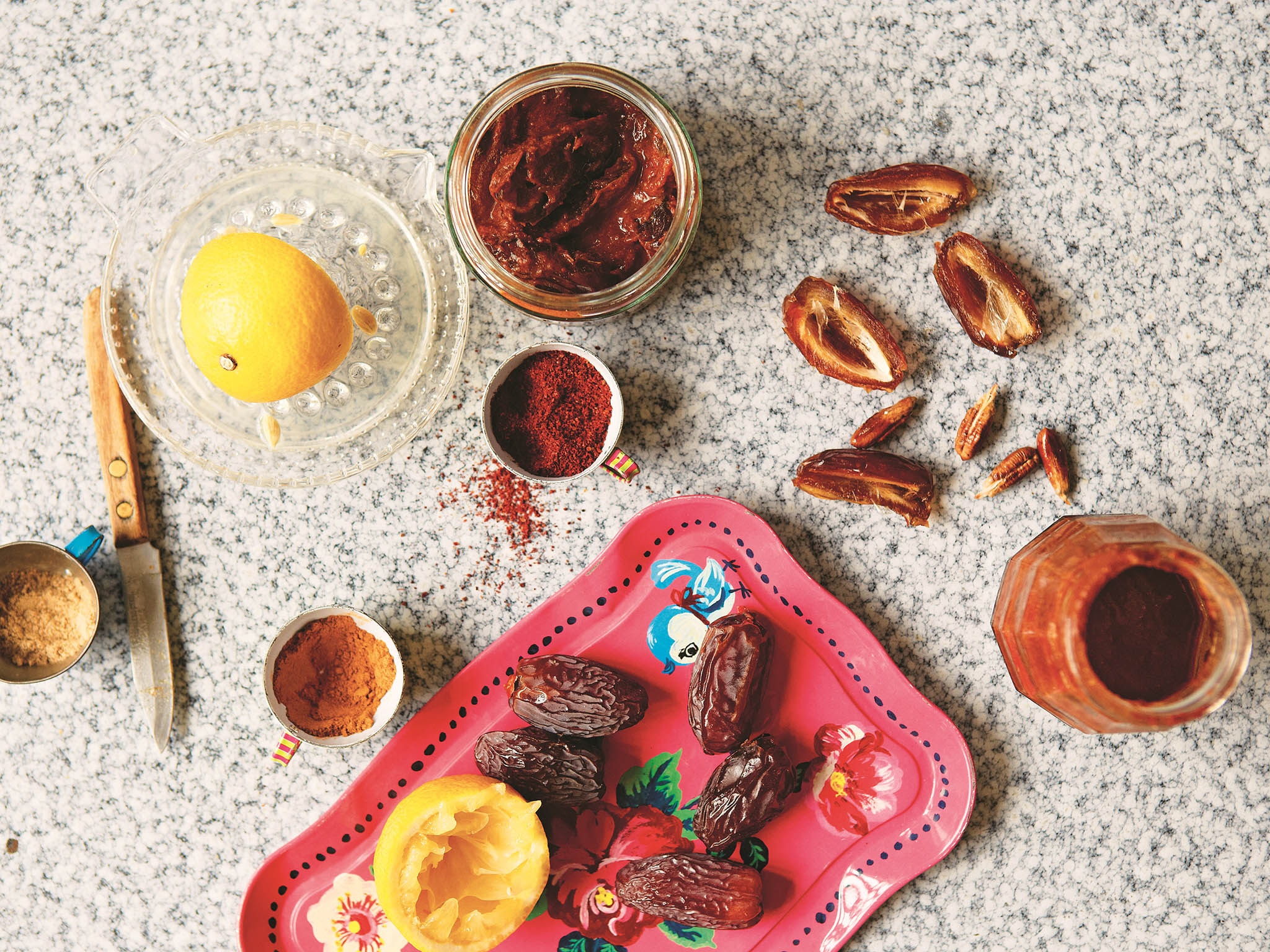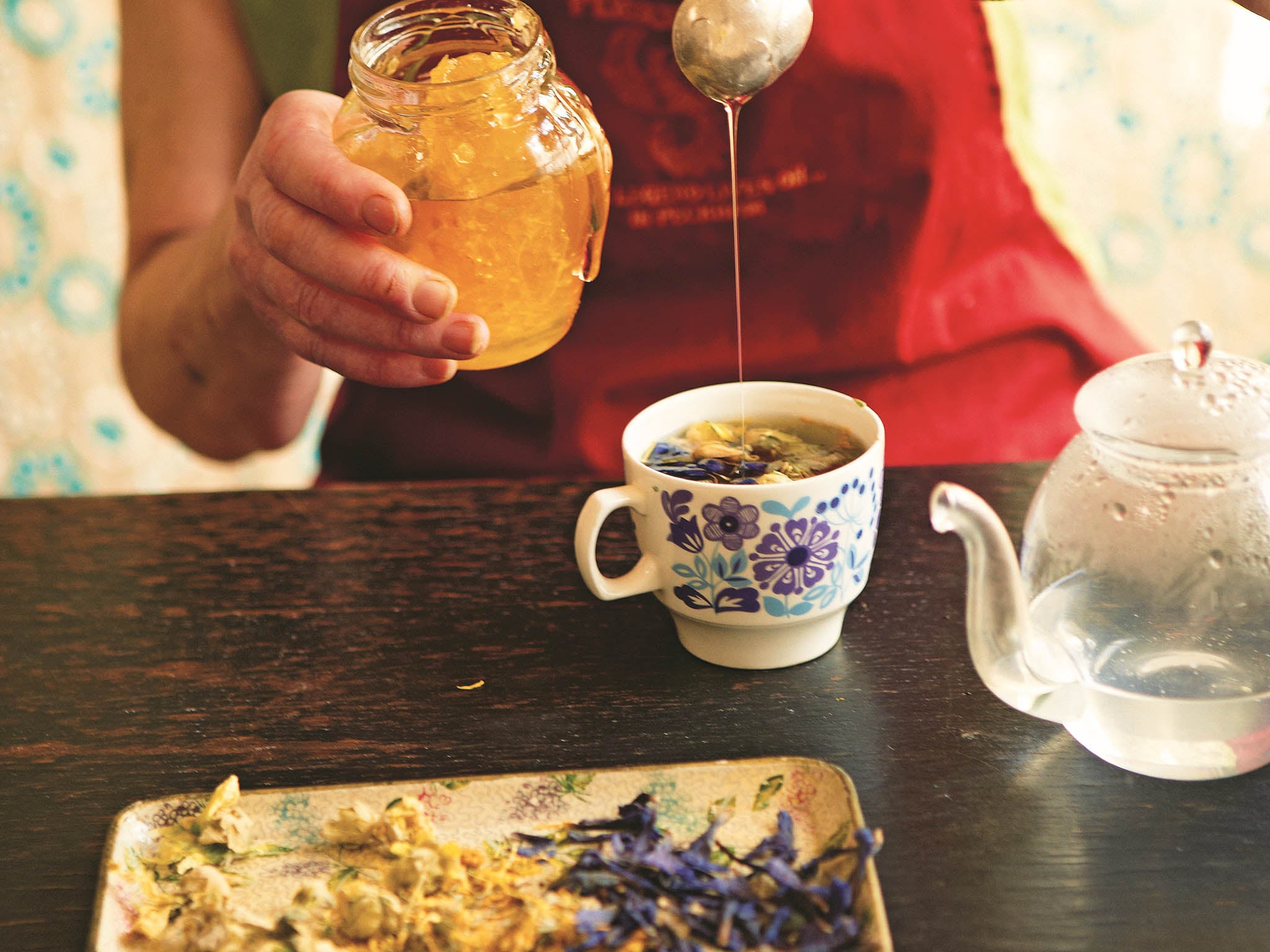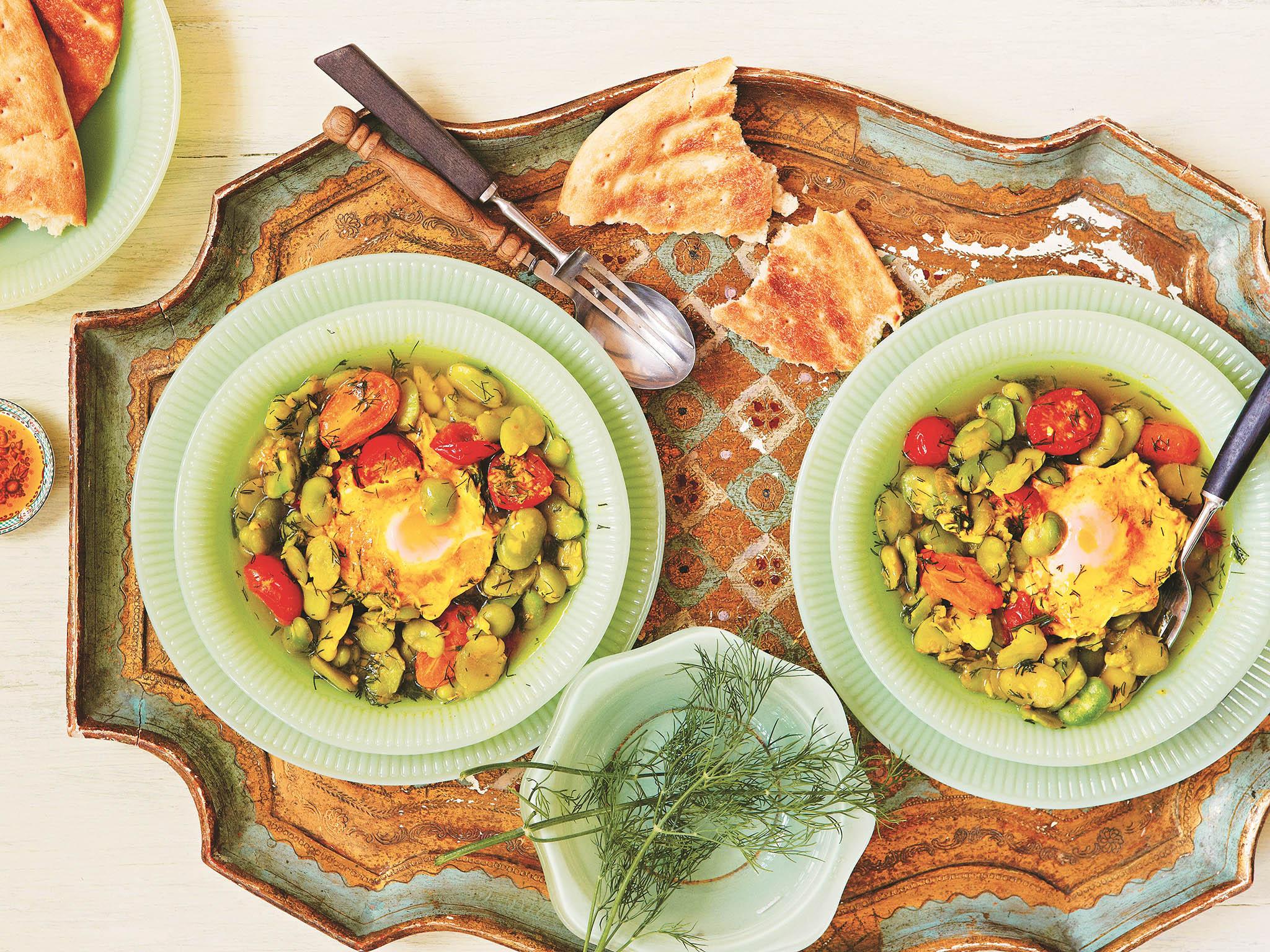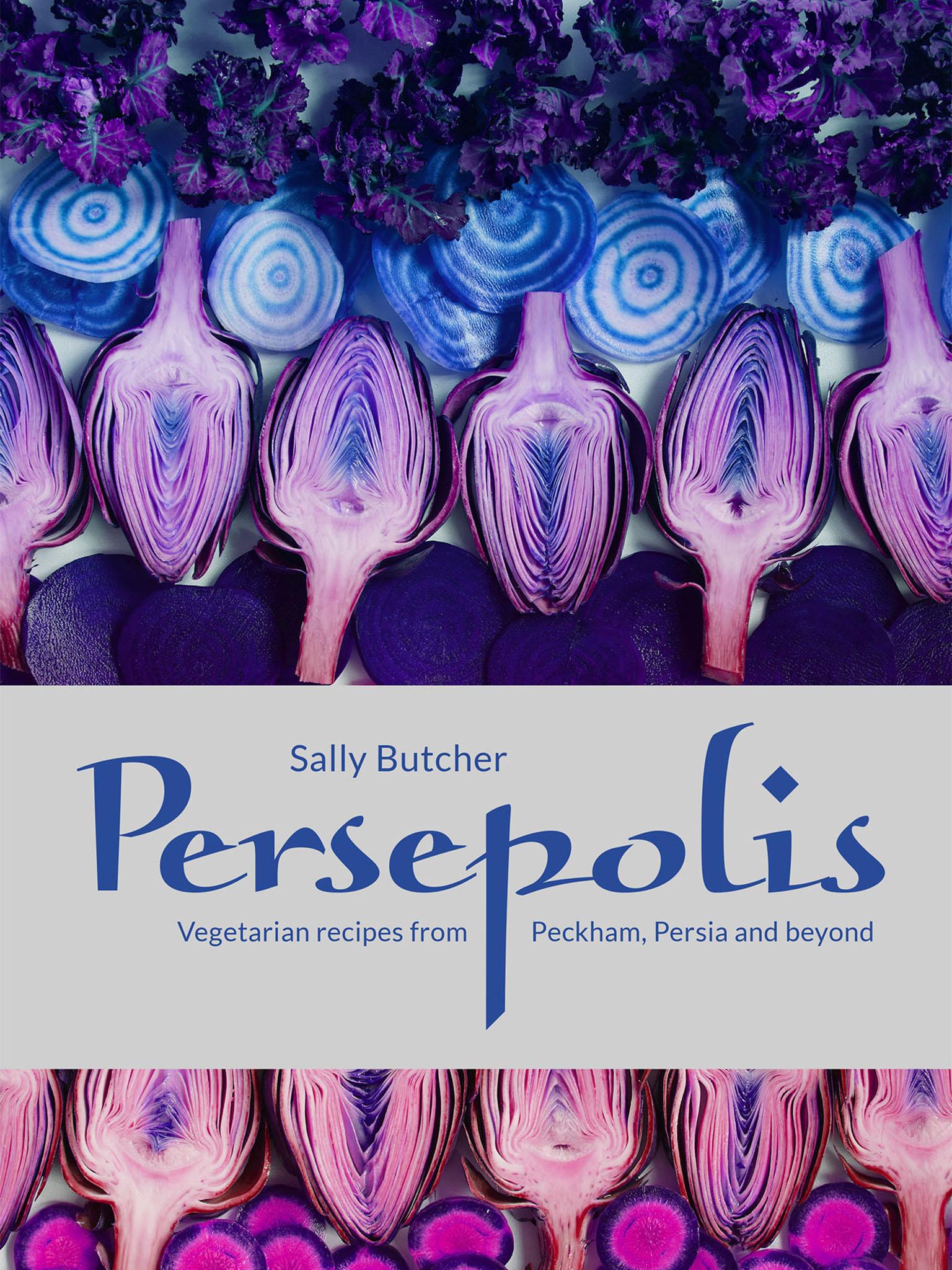Three Iranian recipes from Persepolis
From tamarind pickle to the ultimate cold-busting hakim tea, Sally Butcher puts an Iranian twist on every recipe

Date and tamarind pickle (Torshi-ye-khormah)
This is actually a reworking of a recipe from my first book, Persia in Peckham. That recipe, in turn, was based on a relish from the deep south of Iran, where the heat and the influence of traders from Arabistan and the Far East combine in flavours that are altogether stronger and spicier than those found elsewhere in the country (see the Bandari recipe on page 194). It is an unusual pickle as there is no vinegar or brine – the hard work is done by the sumac and tamarind. It is eye-wateringly piquant, but slightly addictive, and lends itself perfectly to rich dishes and festive fare: We use it as the main event on our Persepolitan cheeseboard.
Makes 3 small jars (300ml)
2 generous tbsp ground sumac
1-2 tsp salt
½ tsp ground black pepper
2 tsp ground cinnamon
1 tsp ground cardamom
200ml tamarind paste
juice of 2 lemons/limes
700g pitted Iranian dates (soft, fresh) or use Medjool
Mix the spices, tamarind and lemon juice together, then stir in the dates (I do this by hand so not to mash the dates up too much and to ensure they all get coated). Pack into clean, dry jars or airtight plastic tubs and store somewhere cool and dry. This should be ready after about a week, but is at its gooiest best after about a month.

Ultimate cold-busting hakim tea
You don’t have to have a cold to enjoy this fragrant floral tea, but it does pack a powerful punch in terms of soothing and relieving and sending your “meecrobes” (generic Veggiestan word for germs) packing.
A hakim is a street doctor, a herbalist, and across the Middle East many rely on them as the first port of call if illness strikes. This is especially the case in countries such as Afghanistan and Pakistan where access to mainstream medicine is far from being a given. But they are not quacks, many are highly trained and have years of experience. In an age when we are hopelessly over-medicated and pharmaceutical companies are laughing all the way to the medicine bank, we could learn a lot from the ancient arts of pulse diagnosis and healing through balanced eating.
The hakim works within the framework of what is known as Unani Tib (literally “Greek” medicine, this owing to the input of Hippocrates and co), and treats patients holistically rather than doling out pills to treat random symptoms. It is believed that nearly all ailments stem from an imbalance in the body, and that nearly all of these can be remedied by diet.
The system emerged initially in ancient Zoroastrian Iran, absorbed elements of Chinese healing and Hippocratic belief and was then “finely honed” in medieval times by Avicenna and his peers.
This tea is a blend, which I have evolved after many years of talking to Afghan and Iranian housewives, because every housewife in the Middle East is an amateur hakim, and every household uses its pantry as its primary medicine chest. The three ingredients all grow in the UK and are easy enough to source.
For 1 snuffly person
1 large pinch dried borage (relaxing, soothing tonic tea)
1 large pinch dried marigold (antibacterial, reduces fever and nasal congestion, promotes healing)
2-3 dried heads of dried marshmallow flowers (a powerful demulcent – it really works to decongest your chest and is used in a lot of traditional cough remedies)
honey, as required
Place the flowers in a mug or teapot and add boiling water to cover. Allow to steep for about 5 minutes, then stir in honey, sip and feel better.

Broad beans with eggs (Baghali Ghatogh)
Broad beans get everywhere in Iran – stirred through rice, underpinning kofteh, featuring in khoresht (casseroles), and indeed as a street food in their own right. This dish from Rasht in the north of Iran really brings out their umami fabulousness: It sees them teamed with dill and lashings of garlic.
Rasht bears the honour of being the butt of far too many saucy jokes (Iranians are possessed of a surprisingly earthy sense of humour), but this beautiful and fertile province on the Caspian sea gets the last laugh as it has just the best cuisine.
Light lunch for 4 or so
1.2kg fresh broad (fava) beans in their pods (or 400g frozen, defrosted)
pure (non extra-virgin) olive oil, for cooking
6 fat garlic cloves, minced (the smoked stuff works well here)
1 tsp ground turmeric
25g dried (or chopped fresh) dill
8-12 cherry tomatoes, halved
¼ tsp ground saffron steeped in a splash of boiling water (optional but nice)
salt and coarsely ground black pepper
4-6 eggs
Regardless of whether you are using fresh or frozen beans, they need to be podded and shucked (ie skinned). This is best done while watching something completely inane on TV – the average Middle Eastern soap opera would fit the bill nicely.

Heat a good glug of oil in a broad, shallow saucepan and fry the garlic and turmeric together. Add the dill and shucked beans, followed by just enough water to cover the ingredients. Bring to the boil, add the cherry tomatoes and saffron water, turn down the heat and simmer for around 10 minutes. Season to taste before cracking the eggs and dropping them in to the bubbling stock, one by one. Poach until just set and serve immediately.
Note: Baghali ghatogh is usually served with rice in Rasht, as northerners are known for eating rice with everything. But it is just as good, if not better, with warm bread. A swirl of good extra-virgin olive oil on top is a nice touch. Non-Veggiestanis may also enjoy this dish the authentic way – as an accompaniment to smoked fish.
Persepolis: Vegetarian Recipes from Peckham, Persia and beyond by Sally Butcher, published by Pavilion Books. Image credit to Yuki Sugiura
Join our commenting forum
Join thought-provoking conversations, follow other Independent readers and see their replies
Comments
Bookmark popover
Removed from bookmarks